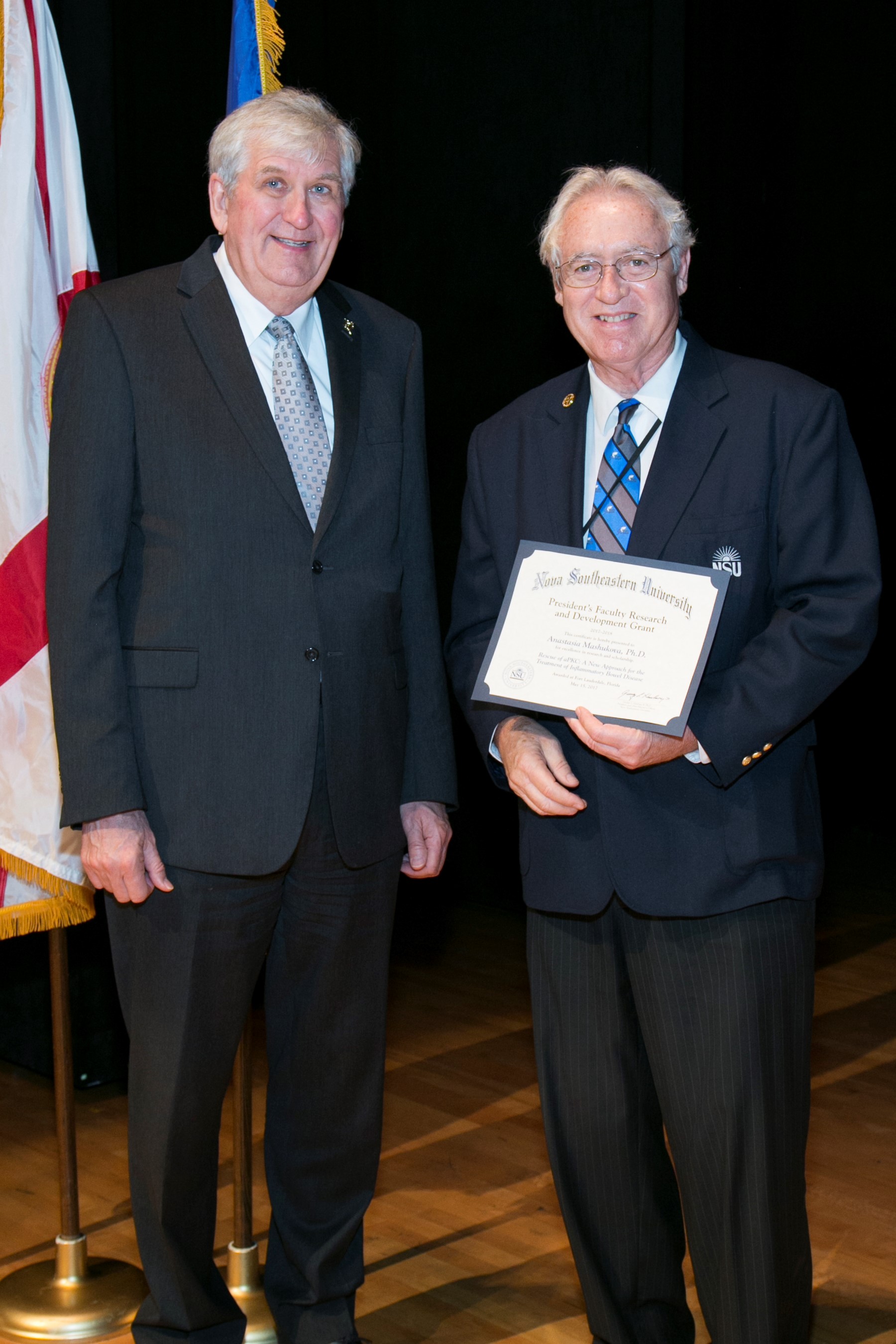Rescue of aPKC: A New Approach for the Treatment of Inflammatory Bowel Disease
Grant Winners
- Anastasia Mashukova, Ph.D. – College of Medical Sciences
Dean
- Harold Laubach, Ph.D. – College of Medical Sciences
Abstract

Inflammatory Bowel Disease (IBD) includes ulcerative colitis and Crohn's disease. It is a complex condition arising from a combination of genetic predisposition and environmental challenges by intestinal bacteria.
The intestinal epithelium is a continuous layer of specialized cells that separates the lumen of the intestine (where the bacteria are located) from the internal environment of the body. It is widely accepted that the loss of tightness of the intestinal epithelium is the major factor that perpetuates the disease, facilitating the diffusion of pro-inflammatory molecules from partially digested food and bacteria into the body's fluids. In IBD secretion of various pro-inflammatory cytokines causes activation of the innate immunity NF-kB pathway which leads to disassembly of the tight junctions, permeabilization of the intestinal barrier and persistent inflammation. NF-kB inhibitors, such as sulfasalazine, have been approved by the FDA and are useful for preventing IBD relapse. However those drugs have multiple collateral effects in other organs systems (e.g. lung sarcoidosis) which can limit their usefulness.
Our main protein of interest is atypical protein kinase C (aPKC). It is known to participate in establishment of tight junctions and maintenance of epithelial barrier. Our recent studies of conditional knockout of aPKC in mouse intestine have revealed that aPKC also has an essential anti-inflammatory function and acts to inhibit NF-κB.
Normal expression of aPKC in intestinal epithelial cells depends on keratin-based multiprotein scaffold that contains chaperone protein Hsp70. This mechanism is destabilized under pro-inflammatory conditions, as indicated by profound loss of aPKC in biopsy samples obtained from IBD patients. The loss of aPKC is mediated by the NFkB-dependent increase in expression of protein Bag-1M (M stands for medium isoform). Bag-1M acts to abolish chaperoning activity of keratin-based Hsp70 and specifically inhibits aPKC refolding. As a result, aPKC is rapidly degraded and epithelial permeability is abnormally increased. Importantly, the inhibitory effect of Bag-1M on Hsp70 activity is not observed with the Bag-1S (small) isoform, which lacks a 44 amino acid N-terminal domain. We conclude that this domain, referred to as the K-Bag domain, is necessary for Bag-1M-mediated aPKC downregulation. Because aPKC is anti-inflammatory, our main goal is to develop molecular tools in order to abrogate K-Bag domain interactions with Hsp70/keratin scaffold. Our hypothesis is that blocking of K-Bag domain interactions will rescue aPKC from degradation, which in turn will cause stimulation of anti-inflammatory signaling mechanisms. We hope that inhibition of the K-Bag domain interactions will display the beneficial anti-inflammatory properties of currently available drugs without multiple side effects.